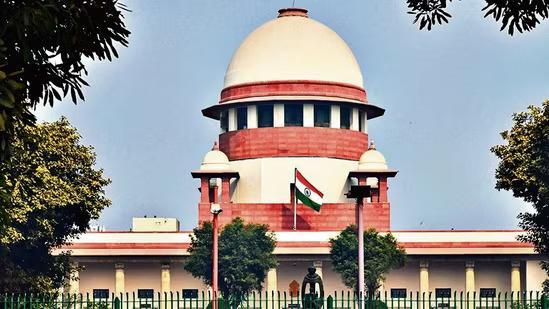
No Action Against Owners of 10 & 15-yr-old Diesel & Petrol Vehicles for 4 Weeks: SC
In a significant ruling, the Supreme Court has passed an order stating that no “coercive” action will be taken against the owners of over 10-year-old diesel and 15-year-old petrol vehicles in Delhi for a period of four weeks. This decision comes in response to an application filed by the Delhi government, which challenged the ban on these vehicles as a pollution control measure in the capital.
The ban on old diesel and petrol vehicles was imposed by the Supreme Court in 2015, with the aim of reducing air pollution in Delhi. The ban stated that vehicles older than 15 years would not be allowed to ply on the roads in Delhi, while diesel vehicles older than 10 years would also be prohibited. However, the Delhi government had challenged this ban, citing difficulties in implementing the same.
The Supreme Court’s latest order is a temporary reprieve for the owners of these vehicles, who would have been forced to either scrap or upgrade their vehicles to meet the emission norms. The court’s decision to stay the ban for four weeks is seen as a relief for the vehicle owners, who would have been affected by the move.
The Delhi government had filed an application in the Supreme Court, seeking a stay on the ban, citing that the city’s transport department was not equipped to implement the same. The government had also argued that the ban would cause hardships to the vehicle owners, especially those who rely on their vehicles for their livelihood.
The Supreme Court’s order is seen as a victory for the Delhi government, which had been fighting to lift the ban. The government had argued that the ban was not feasible, given the city’s limited infrastructure and resources. The court’s decision to stay the ban for four weeks is seen as a temporary solution, allowing the government to explore alternative measures to reduce air pollution in the city.
The Supreme Court’s order is also seen as a blow to the National Green Tribunal (NGT), which had ordered the ban on old diesel and petrol vehicles. The NGT had imposed the ban in 2015, citing the need to reduce air pollution in Delhi. However, the Delhi government had challenged the NGT’s order, and the Supreme Court’s latest decision stays the NGT’s order for four weeks.
The Supreme Court’s order has been welcomed by the vehicle owners, who would have been affected by the ban. The owners of these vehicles would have been forced to either scrap or upgrade their vehicles, which would have been a costly affair. The court’s decision to stay the ban for four weeks is seen as a relief, allowing the owners to continue using their vehicles without any disruptions.
However, the Supreme Court’s order has also raised concerns about the impact on air pollution in Delhi. The ban on old diesel and petrol vehicles was imposed to reduce air pollution in the city, which is a major concern. The Supreme Court’s decision to stay the ban for four weeks may lead to an increase in air pollution, which could have serious health implications for the citizens of Delhi.
The Delhi government has been exploring alternative measures to reduce air pollution in the city. The government has been promoting the use of electric vehicles, and has also been implementing measures to reduce the use of fossil fuels in the city. The government’s efforts to reduce air pollution are seen as a positive step, and the Supreme Court’s decision to stay the ban for four weeks may give the government more time to explore alternative measures.
In conclusion, the Supreme Court’s decision to stay the ban on old diesel and petrol vehicles for four weeks is a significant development. The decision is seen as a relief for the vehicle owners, who would have been affected by the ban. However, the decision may also have implications for air pollution in Delhi, and the Delhi government needs to explore alternative measures to reduce air pollution in the city.




